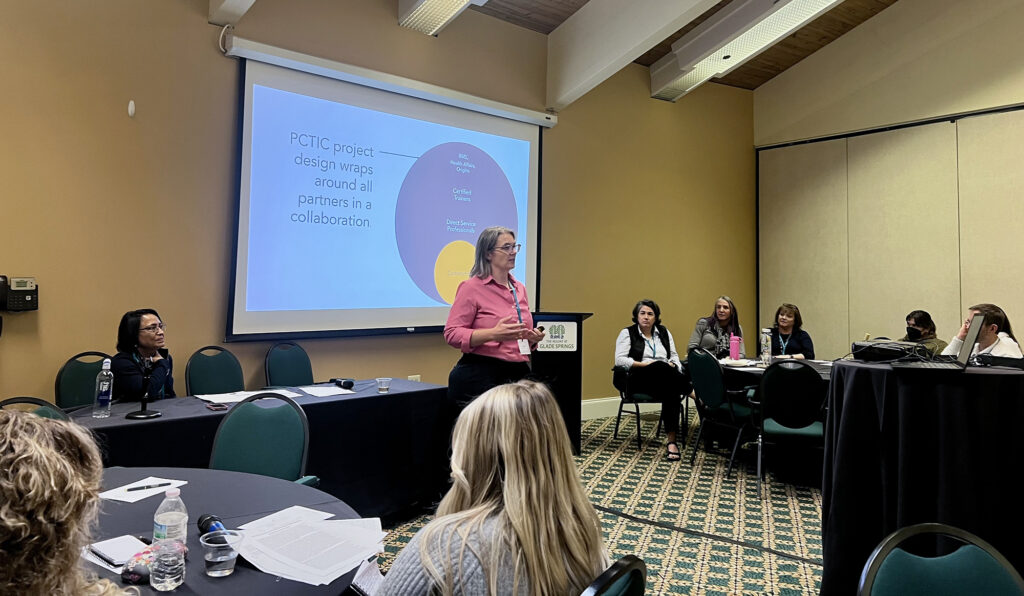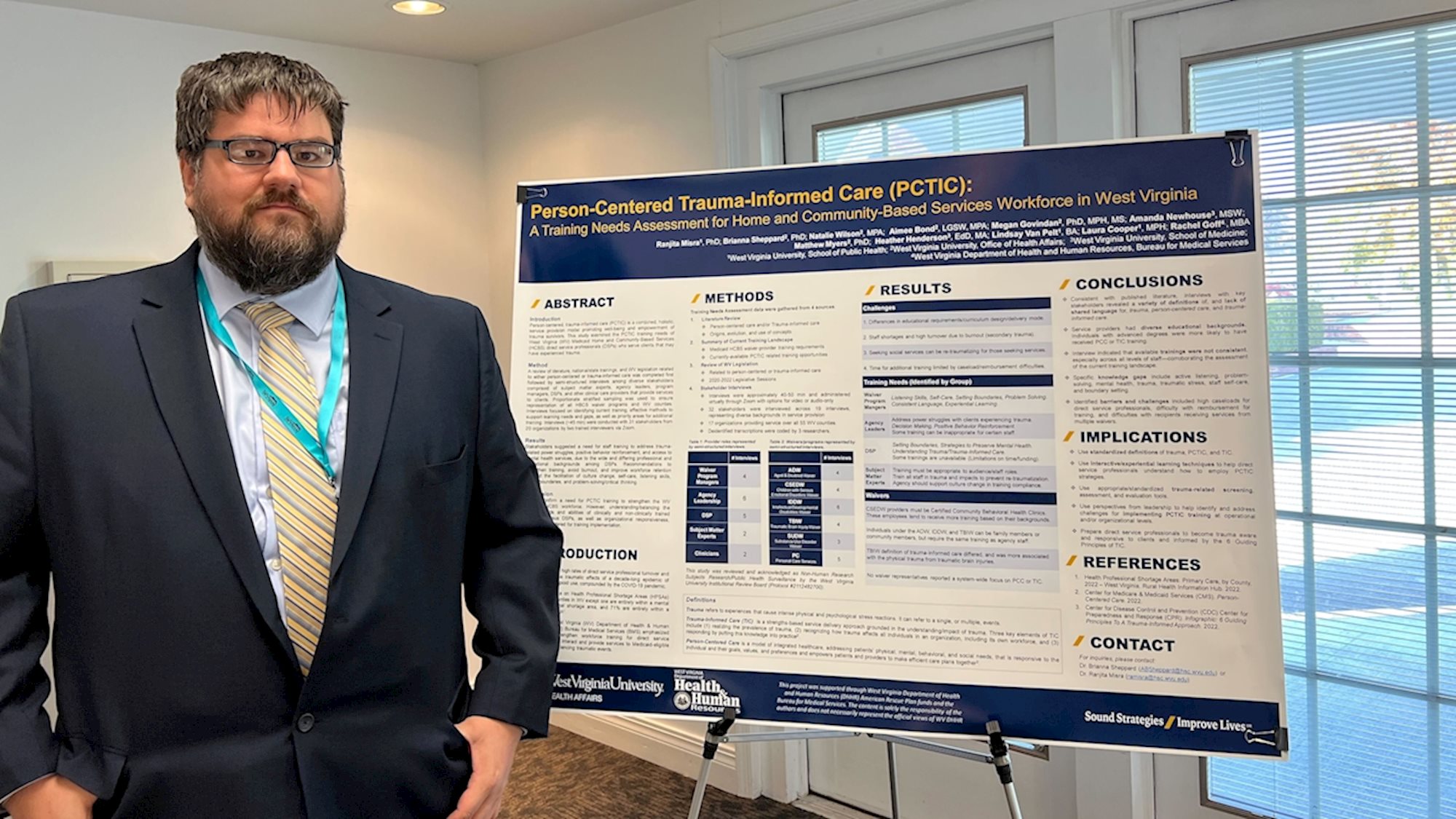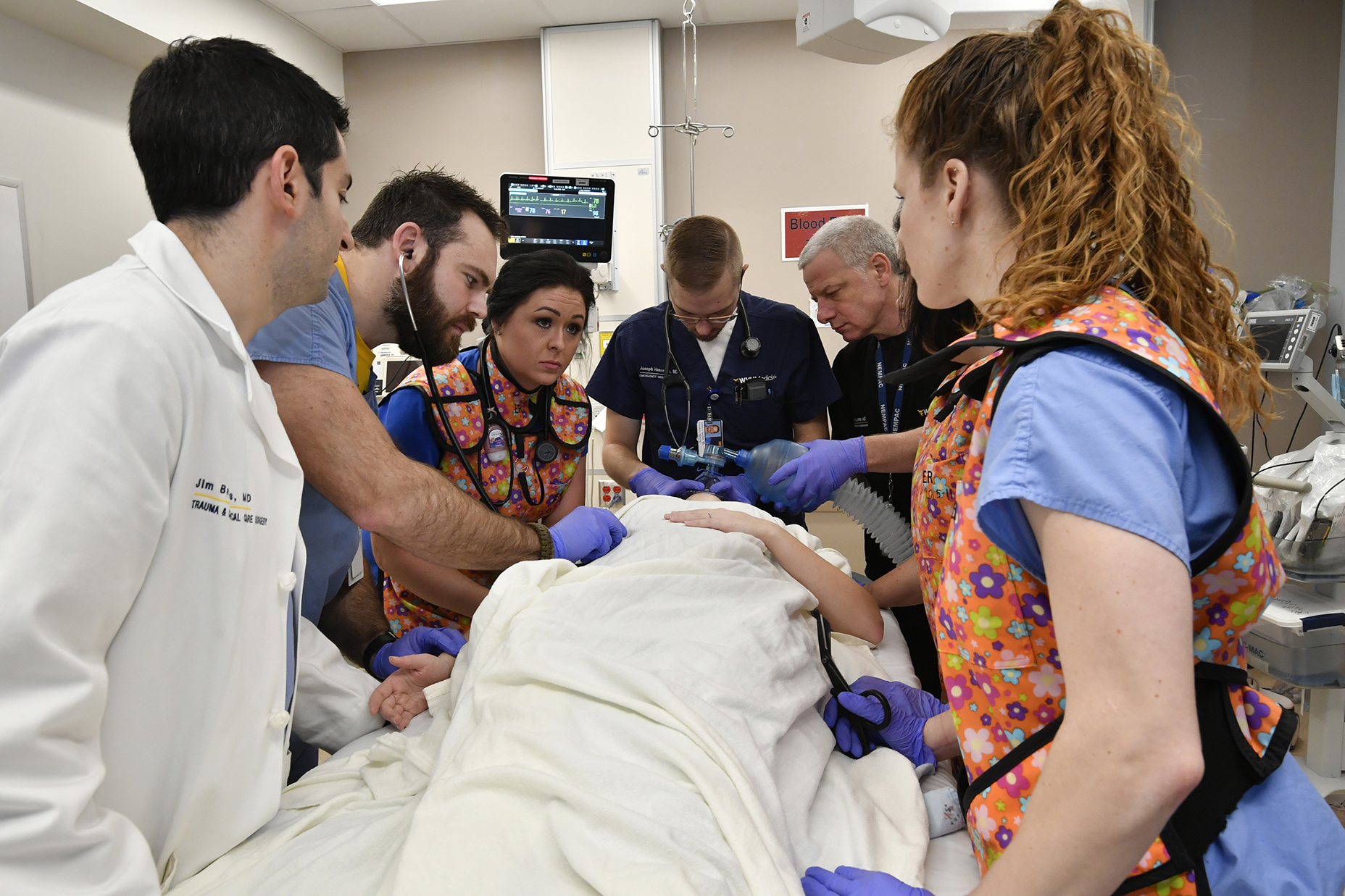Enhancing West Virginia’s Rural Health through Workforce Development, Provider Perspectives

At its 32nd Annual West Virginia Rural Health Conference, the West Virginia Rural Health Association (WVRHA) brought together subject matter experts, service providers, and stakeholders across the healthcare spectrum to share their unique knowledge and experiences.
The 2024 theme, “Innovation Starts in the Mountains,” emphasizes that a thriving future for West Virginia—and the nation—depends on the health and prosperity of our rural communities and all of us who serve with them, says Courtney Hereford, senior research specialist at WVU Health Affairs Institute. Hereford is a WVRHA Board of Directors member and has served as conference chair for four years.
“As West Virginians, we understand challenge, resiliency, and community,” Hereford said. “The conference showcased novel practices and collaborations across the state that are transcending great obstacles and opportunities with topics covering health equity, state and federal policy, social determinants, prevention, treatment, recovery, and more.”
Another prominent subject at the conference was provider recruitment and retention. WVU Health Affairs Institute presented work highlighting providers’ and patients’ experiences through projects like the Medicaid Opioid Use Disorder Treatment Outcomes and Recovery (MOTOR) Project and Person-Centered Trauma-Informed Care (PCTIC) Training.
A multiyear, multiphase project, MOTOR has conducted surveys and dozens of interviews since its 2019 inception. In addition to interviews evaluating Medicaid beneficiaries’ experiences with medication for opioid use disorder (MOUD) and abstinence-based treatment, MOTOR team members also analyze indirect costs of MOUD treatment and MOUD treatment capacity in West Virginia.

“Health providers who prescribed medications for opioid use disorder told us they wanted more training about addiction, substance use, general mental health conditions, and about polysubstance use (people who use more than one drug in a short period of time),” said Jonathan Young, Assistant Director of Mental and Behavioral Health at Health Affairs. “In addition, people getting treatment for opioid use disorder told us they wanted health providers who treated them like a person and not a number. This means that providers may also want to get some training focusing on person-centered care that prioritizes the individual and gives them choices in the care process.”
Like MOTOR, the PCTIC training work also spotlights provider and patient experiences. Provided by the West Virginia Department of Human Services (DoHS) Bureau for Medical Services (BMS), in collaboration with WVU Health Affairs Institute, PCTIC focuses on providing trauma-informed care and taking the client’s individual needs and on one’s own past traumas into consideration when delivering healthcare services.
“The strength and resilience of our workforce is essential to providing quality services to West Virginians,” said Laura Cooper, senior program manager at Health Affairs. “We’ve trained 74 trainers throughout West Virginia who have trained nearly 1,000 workers providing direct services in West Virginia so far.”
Those who have completed training often work in the West Virginia Home and Community-Based Waiver Services, including programs like the Children with Serious Emotional Disorders, Intellectual and/or Developmental Disabilities, and Traumatic Brain Injury waivers. Cooper says trainees have noted strengths of PCTIC training such as the ability to share their experiences more openly and how these experiences apply to trainees’ positions.
“WVRHA is committed to improving access, capacity, and equity in health and care through sustaining, community-driven solutions and partnerships,” Hereford added. “It is my great pleasure to serve our state through the WVRHA and doubly so to do that alongside my Health Affairs family.”
To learn more about the West Virginia Rural Health Association, visit wvrha.org. Read more about Health Affairs Institute’s work at healthaffairsinstitute.org/capabilities.




















